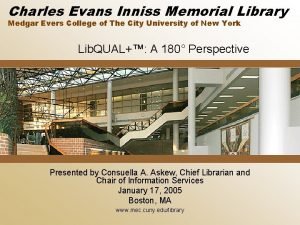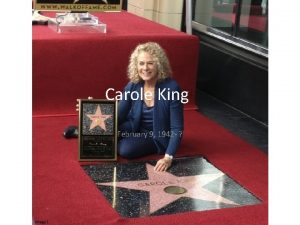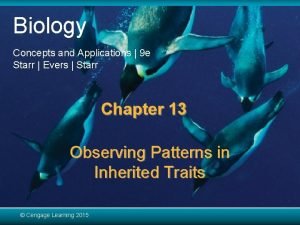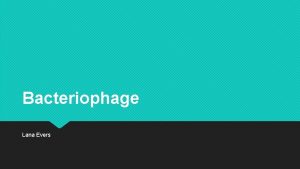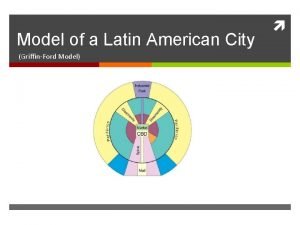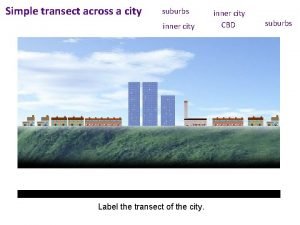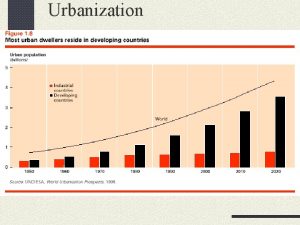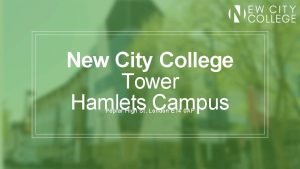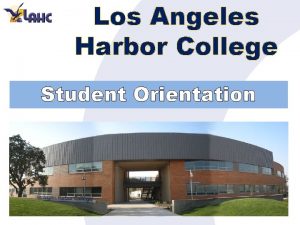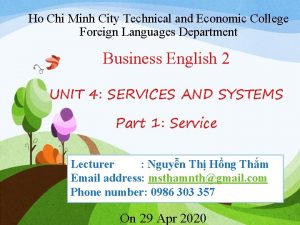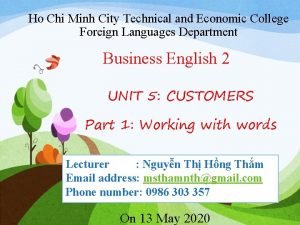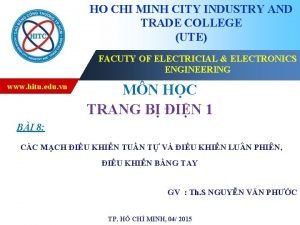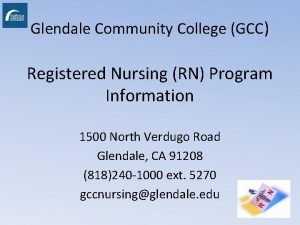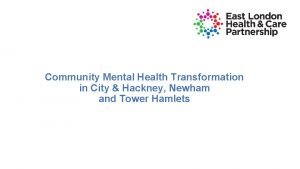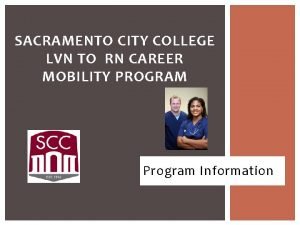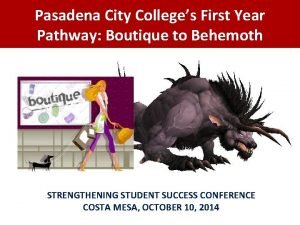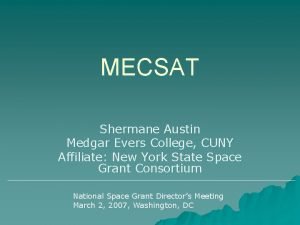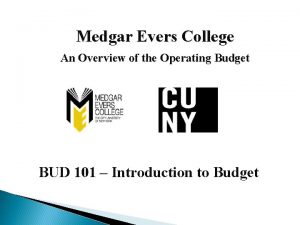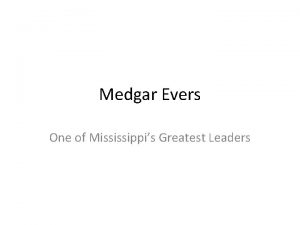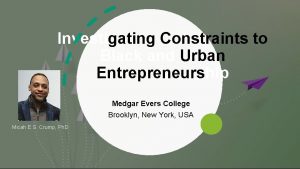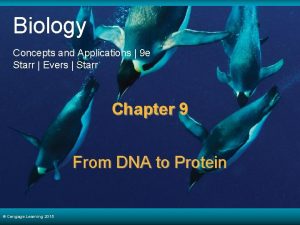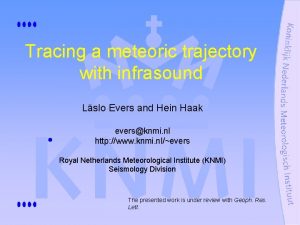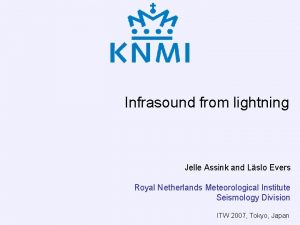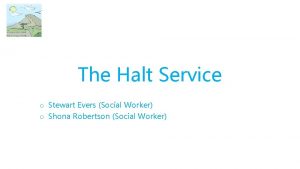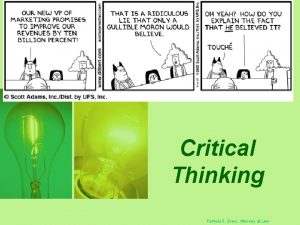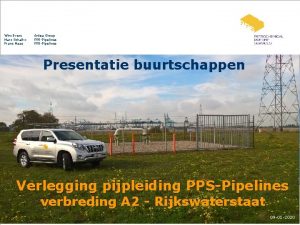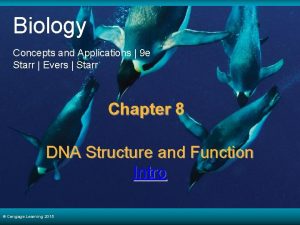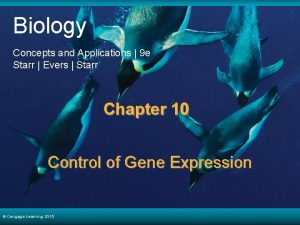Medgar Evers College Of the City University of

















- Slides: 17

Medgar Evers College Of the City University of New York INFORMATION LITERACY What is Information Literacy? Information Literacy is the set of skills needed to find, retrieve, analyze, and use information. Find Retrieve Analyze Use Learn how to learn!

INFORMATION LITERACY If we don’t know how information is organized, it seems to be chaotic and useless.

INFORMATION LITERACY If we know how information is organized, it is achievable and ready to use.

INFORMATION LITERACY “Ultimately, information literate people are those who have learned how to learn. They know how to learn because they know how knowledge is organized, how to find information, and how to use information in such a way that others can learn from them. They are people prepared for lifelong learning, because they can always find the information needed for any task or decision at hand. ” (American Library Association Presidential Committee on Information Literacy. January 10, 1989, Washington, D. C. )

INFORMATION LITERACY Information Literacy against Data Smog ügives us the skills to know when we need information and where to locate it effectively and efficiently üincludes the technological skills needed to use the modern library as a gateway to information üenables us to analyze and evaluate the information we find

INFORMATION LITERACY Face information choices Assume greater control over your own learning ü Determine the extent of information needed ü Access the needed information effectively and efficiently

INFORMATION LITERACY Assume greater control over your own learning üEvaluate information and its sources critically üIncorporate selected information into your knowledge base üUse information effectively to accomplish a specific purpose üUnderstand the economic, legal, and social issues; access and use information ethically and legally

INFORMATION LITERACY Deep Web = Content on the World Wide Web not accessible through a search on general search engines, such as Google, Yahoo, etc.

INFORMATION LITERACY Web search engine is an information retrieval system designed to find information stored on the Web. Special intelligent programs (informational robots) named “crawlers”, or “bots”, or “spiders” browse the Internet and collect information. The content of the Deep Web is special and must be protected against this automated access.

INFORMATION LITERACY ü The content of databases (information created by special programs; accessible only by query) ü Non-text files: multimedia, images, software; Portable Document Format (PDF) and Microsoft Word documents ü Content available on sites protected by passwords (fee-based content, e. g. subscription content paid for by libraries)

INFORMATION LITERACY ü Special content not presented as Web pages (full text articles and books) ü Dynamically-changing, updated content (news and airline flights) ü Blog postings ü Comments ü Discussions etc. on social networking sites ü Bookmarks and citations stored on social bookmarking sites

INFORMATION LITERACY DATABASE A collection of information organized in such a way that a computer program can quickly retrieve desired pieces of data.

INFORMATION LITERACY DATABASE A database usually sits on a powerful web-accessible remote computer, or server. The server is usually connected to local client computers via LAN and WAN. When a client computer receives access to a database, it must formulate a request in the form of a query (a stylized question), and the server should respond with the desired data.

INFORMATION LITERACY Database must be created by specialists in database management system (DBMS). DBMS is a collection of programs that enables a database administrator (DBA) to store, modify, and extract information in a database. It ensures: üdata integrity (making sure it continues to be accessible and is consistently organized as intended) üdata security (making sure only those with access privileges can access the data).

INFORMATION LITERACY OPAC Online Public Access Catalog – online database of materials held by a library.

INFORMATION LITERACY OPAC

INFORMATION LITERACY OPAC
 Medgar evers library
Medgar evers library Rick evers
Rick evers Starr evers starr biology concepts and applications
Starr evers starr biology concepts and applications Lana evers
Lana evers 詹景裕
詹景裕 Latin american model example
Latin american model example Hoyt model
Hoyt model Is mexico city a primate city
Is mexico city a primate city New city college
New city college Harbor city community college
Harbor city community college Ho chi minh city technical and economic college
Ho chi minh city technical and economic college Ho chi minh city technical and economic college
Ho chi minh city technical and economic college Hcm city industry and trade college
Hcm city industry and trade college Glendale nursing school
Glendale nursing school City and hackney recovery college
City and hackney recovery college Jessore govt. city college
Jessore govt. city college Sacramento city college aa degree requirements
Sacramento city college aa degree requirements Pasadena city college pathways
Pasadena city college pathways
